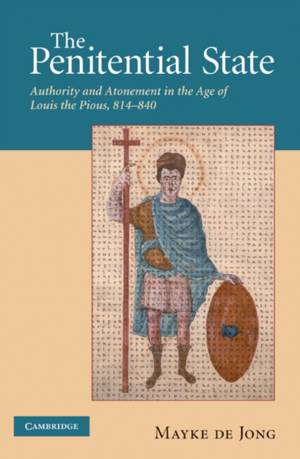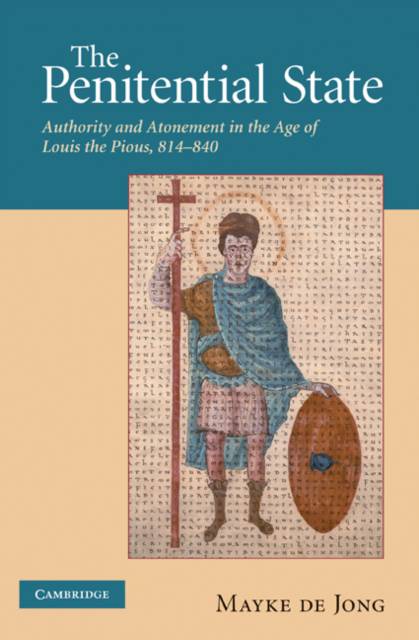
- Afhalen na 1 uur in een winkel met voorraad
- Gratis thuislevering in België vanaf € 30
- Ruim aanbod met 7 miljoen producten
- Afhalen na 1 uur in een winkel met voorraad
- Gratis thuislevering in België vanaf € 30
- Ruim aanbod met 7 miljoen producten
Zoeken
The Penitential State
Authority and Atonement in the Age of Louis the Pious, 814 840
Mayke de Jong
Paperback | Engels
€ 69,45
+ 138 punten
Uitvoering
Omschrijving
In 833 emperor Louis the Pious, Charlemagne's son, submitted to a public penance in the wake of a rebellion by his three elder sons. This penance amounted to a deposition, for Louis was to atone for his sins for the rest of his life. However, only half a year later, he was back on the throne again. In this evaluation of Louis' reign, Mayke de Jong argues that his penance was the outcome of a political discourse and practice in which the accountability of the Frankish ruler to God played an increasingly central role. However heated their debates, this was a moral high ground Louis shared with churchmen and secular magnates. Through a profound re-reading of texts by contemporary authors who reflected on legitimate authority in times of crisis, this book reveals a world in which political crime was defined as sin, and royal authority was enhanced by atonement.
Specificaties
Betrokkenen
- Auteur(s):
- Uitgeverij:
Inhoud
- Aantal bladzijden:
- 340
- Taal:
- Engels
Eigenschappen
- Productcode (EAN):
- 9780521205207
- Verschijningsdatum:
- 28/04/2011
- Uitvoering:
- Paperback
- Formaat:
- Trade paperback (VS)
- Afmetingen:
- 152 mm x 229 mm
- Gewicht:
- 498 g

Alleen bij Standaard Boekhandel
+ 138 punten op je klantenkaart van Standaard Boekhandel
Beoordelingen
We publiceren alleen reviews die voldoen aan de voorwaarden voor reviews. Bekijk onze voorwaarden voor reviews.











